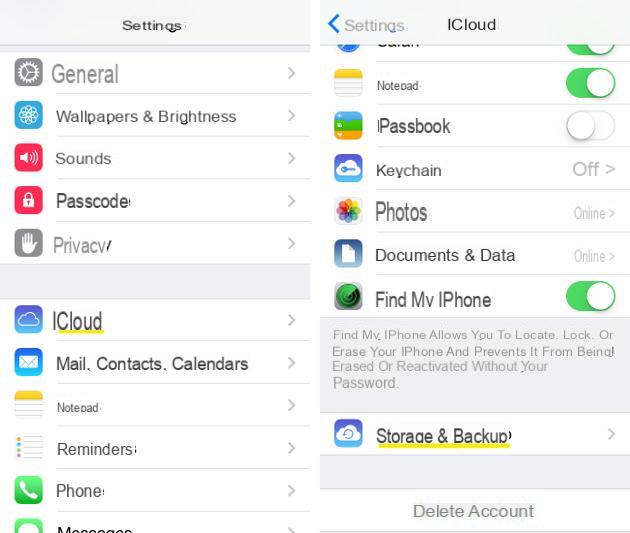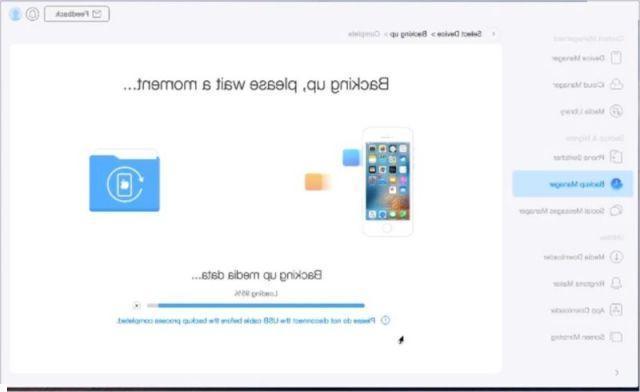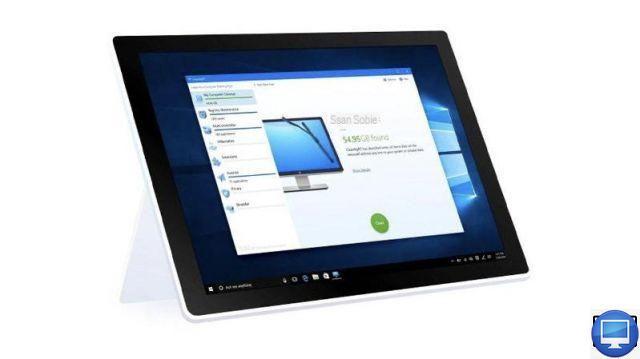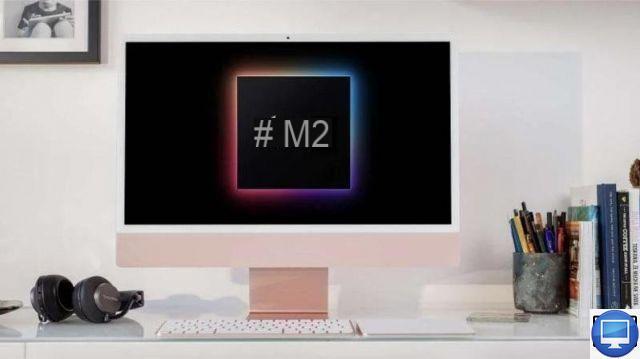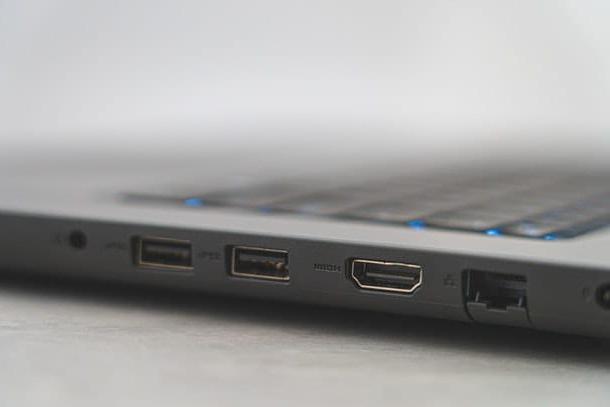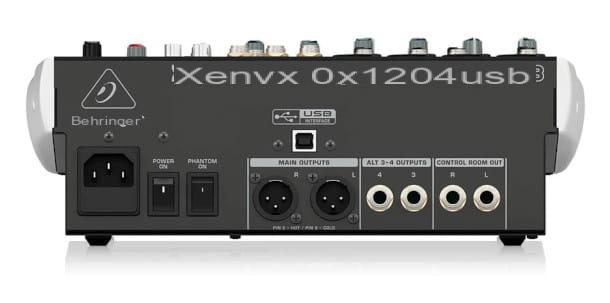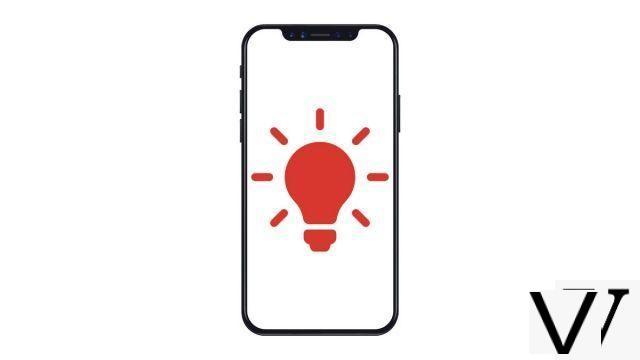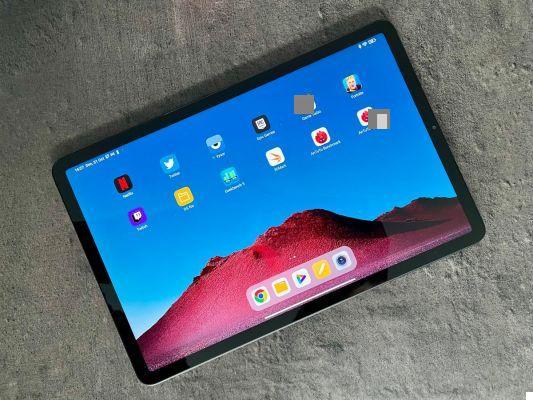 © Mathieu Grumiaux for Itopdroid
© Mathieu Grumiaux for Itopdroid
After having become in a few years one of the most important manufacturers of the smartphone market, Xiaomi seems to want to repeat the experience in the touch pad .
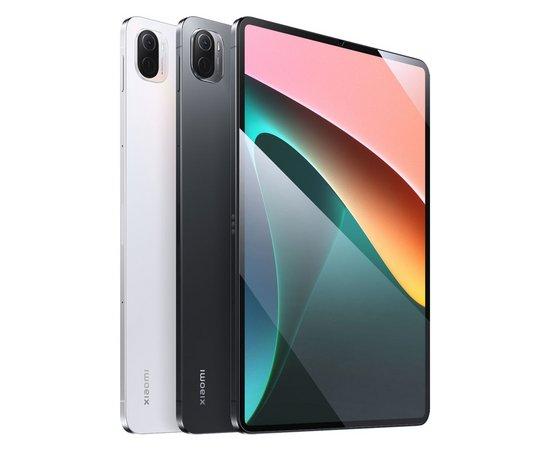 8
8
€ 349,99 Read the conclusion Xiaomi Pad 5
- Sober design
- 120 Hz display
- A high-performance processor for the majority of tasks
- MIUI 12.5
- Photo quality
- Autonomy of almost 3 days in versatile use
- Optional accessories
- An audio system that lacks depth
- No fingerprint reader or GPS
- Only Wi-Fi 5
The Xiaomi Pad 5 thus wishes to replicate the same strategy: a product that makes little compromise on its technical specifications at a more affordable price than its direct competitors, which here are the Apple iPad Air and the Samsung Galaxy Tab S7.
Has the Chinese manufacturer managed to impose its mark with its latest Xiaomi Pad 5? We take stock in our full test.
Summary
- Xiaomi Pad 5: the technical sheet
- Xiaomi Pad 5 tech. Sheet
- Design: a sober and well-designed product
- Screen: a bright and shimmering 120 Hz panel
- Audio: four loud speakers, but lacking in precision
- Performance: a powerful chip for everyday tasks
- Software: MIUI 12.5 and Android 11 go hand in hand
- Photo / Video: the union minimum for a surprisingly good result
- Battery life: two to three days of average use
- Xiaomi Pad 5: Itopdroid's user review
Xiaomi Pad 5: the technical sheet
Xiaomi Pad 5 tech. Sheet
OS
Android operating system Android operating system version 11 Android overlay MIUI 12.5 Google Assistant voice assistant
Performance
Qualcomm Snapdragon 560 processor RAM 6GB
Displays and Signage
Touch screen LCD type Panel type IPS Screen size 11 inches Screen resolution 2560 x 1600 pixels
Warehousing
128GB internal memory
Battery
Autonomy 17h Battery type Lithium Removable battery No Capacity 8720 mAh Quick charge No Wireless charging No
Camera
Number of sensors 2 Front flash Yes Rear flash Yes Image stabilization Electronic HDR Yes
Connectivity
Wi-Fi Yes Wi-Fi standard Wi-Fi AC Bluetooth standard Bluetooth 5.0
Equipment
Available connectors USB-C port Speaker number 4 Accelerometer Yes Biometric fingerprint reader No Facial recognition system Yes
Physical Characteristics
Height 254,7mm Width 166,3mm Depth 6,9mm Weight 511g
Design: a sober and well-designed product
This year, we will not award the prize for originality to Xiaomi for the design of its Pad 5, which certainly does not seek to reinvent the wheel.
We are faced with a large 11-inch slab, surrounded by rather wide borders which allow however to integrate the front camera, but also to allow the tablet to be held without the fingers touching the screen during use.
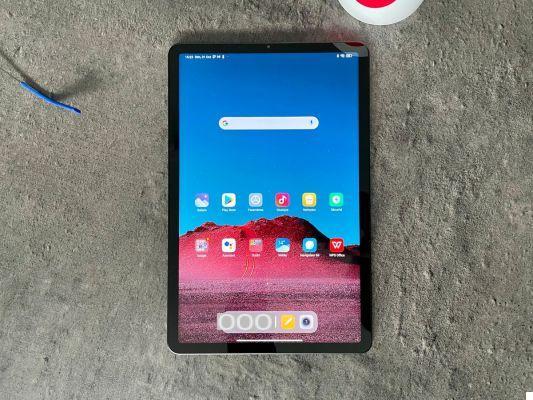 © Mathieu Grumiaux for Itopdroid
© Mathieu Grumiaux for Itopdroid
Are the edges made of aluminum. On the right side, we find the button to control the volume and a magnetic area to attach the Xiaomi Smart Pen to store and recharge it. The accessory is not included in the packaging and is offered as an option on the manufacturer's website.
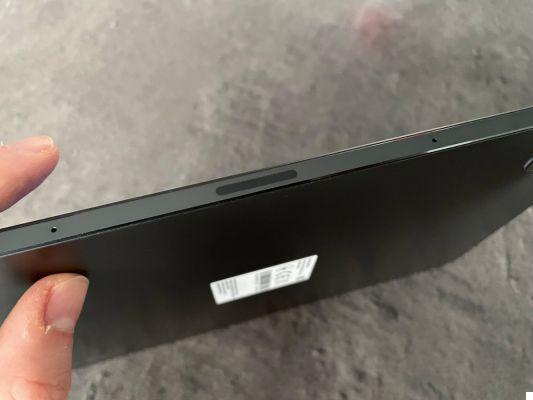 © Mathieu Grumiaux for Itopdroid
© Mathieu Grumiaux for Itopdroid
On the left edge, a connector that allows you to magnetically attach a keyboard also offered as an option by the brand.
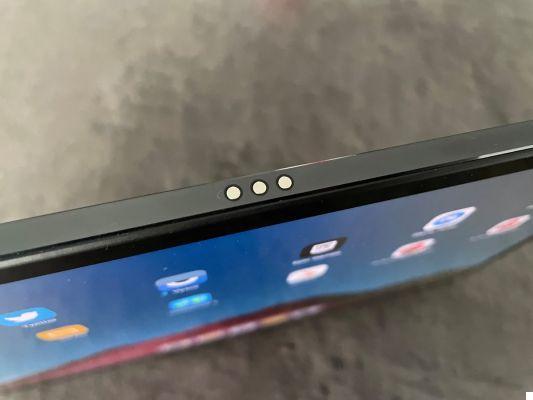 © Mathieu Grumiaux for Itopdroid
© Mathieu Grumiaux for Itopdroid
At the top and bottom of the device in portrait mode, there are also four grilles covering the four speakers included in the tablet.
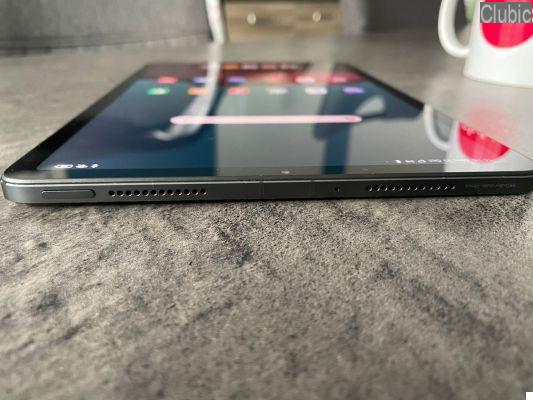 © Mathieu Grumiaux for Itopdroid
© Mathieu Grumiaux for Itopdroid
At the bottom of the device, we finally find the USB-C connector for charging. A cable and an AC adapter are provided in the packaging.
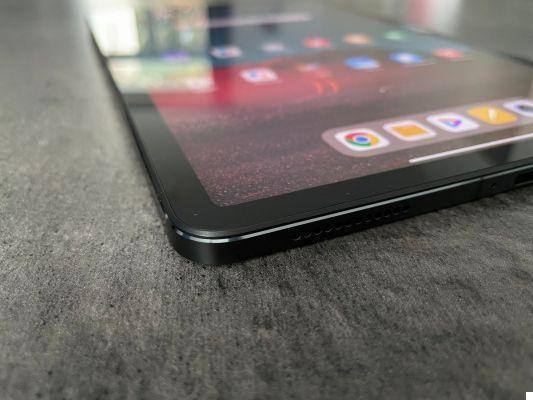 © Mathieu Grumiaux for Itopdroid
© Mathieu Grumiaux for Itopdroid
Finally, on the back, Xiaomi has also chosen a matt aluminum material, very elegant and sober, but which tends to mark fingerprints very quickly. The housing for the single camera and its LED flash is very discreet and hardly comes out of the body of the device.
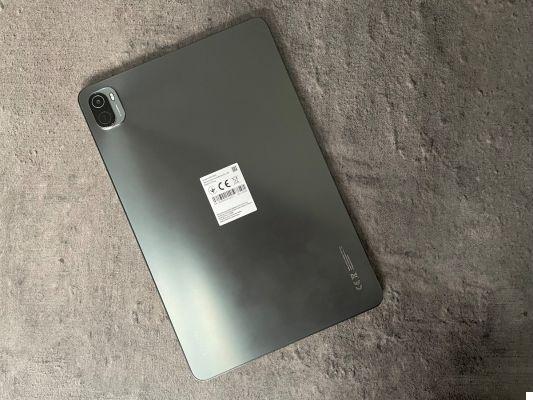 © Mathieu Grumiaux for Itopdroid
© Mathieu Grumiaux for Itopdroid
The Xiaomi Pad 5 is not the most original tablet that we have had in our hands, but a product that exudes quality without weighing too heavily in the hands or in a bag with a contained weight of 511 grams on the balance.
A lack, however, compared to its competitors: Xiaomi did not see fit to add a biometric recognition system to its device such as a fingerprint sensor. You have the option of using a good old PIN code or a very efficient facial recognition system that uses the front camera to recognize you each time you log in. Be careful, however, a simple photo may be enough to trap it and moreover Xiaomi does not offer it for example to authenticate when purchasing an application.
Screen: a bright and shimmering 120 Hz panel
Now let's move on to the screen which has a definition of 1 x 600 WQHD + pixels. The IPS panel also offers a refresh rate of 2 Hz, which flatters the retina during various movements in the interfaces, with great fluidity.
Note, however, that the Xiaomi Pad 5 does not offer adaptive cooling. It is only possible to select 60 Hz or 120 Hz, set by default.
The brightness of the panel is 500 nits, with an automatic adaptation according to the ambient brightness of the environment in which you find yourself. In broad daylight as in total darkness, the IPS panel does its job perfectly and the content on the screen is always correctly displayed.

Regarding the color rendering, Xiaomi does in the flash with an Intense setting which pushes the knobs for very saturated images, but nevertheless pleasing to the eye, with a colorimetry and a brightness adapted to the type of content displayed on the screen and to ambient lighting.
Two other modes are accessible in the settings, the Saturated mode and the Natural mode, much gentler on the eyes with a warmer image.
Audio: four loud speakers, but lacking in precision
The Xiaomi Pad 5 therefore has four speakers located on either side of the tablet. The brand also boasts the compatibility of its device with Dolby Atmos, whose logo is affixed to the top edge.
Unfortunately, fans of cinema and series will have to be satisfied above all with good stereo sound. We did not perceive the slightest spatialization touted by the manufacturer, except for a few slight details at rare times.
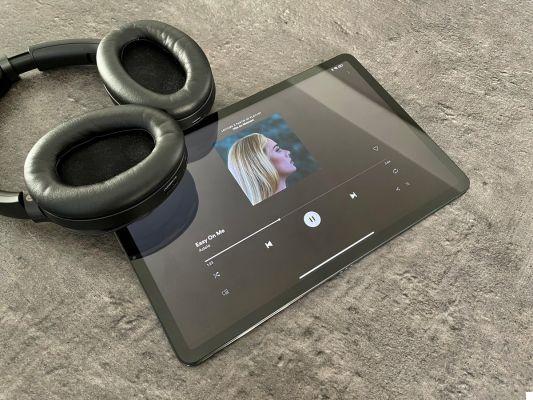 © Mathieu Grumiaux for Itopdroid
© Mathieu Grumiaux for Itopdroid
However, the sound produced by these components remains of good quality for watching streaming content on the go. The mids are well put forward, the voices are therefore in the foreground and always understandable, but we would also have liked a little less dry and more generous bass to reinforce the immersion in the different contents.
Performance: a powerful chip for everyday tasks
The Xiaomi Pad 5 embeds a Qualcomm Snapdragon 860 SoC, which is certainly not the most powerful system on the market, but which on paper should deliver quite convincing average performance for family use.
We therefore released our benchmark tools and on Geekbench 5, the tablet obtained a score of 676 in single-core and 2723 in multi-core, values anything but shameful which place it below the Apple iPad, which sold well. more expensive, but not well below a Samsung Tab S7 while the Korean brand's device is boxing in a much higher price category.
Regarding AnTuTu, the Xiaomi Pad 5 scores 574 points and 063 points on 3428DMark, which again brings it closer to the Samsung Galaxy Tab S3.
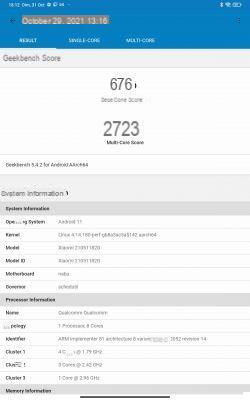
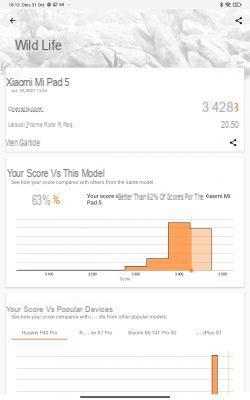

In use, the Xiaomi Pad 5 is constantly responsive. Apps launch in no time, and even with multitasking to the brim with software, picking up a task where you left off is easy. Social networks, instant messaging or office automation applications pose no problem to the Snapdragon 860 which collects without flinching the back and forth between these different types of software.
For gaming, things are more mixed. Most of the mobile games adapted to the tablet format available on the Google Play Store will be executed without any latency by the Xiaomi Pad 5, no problem there.
The more greedy games will quickly tickle the limits of the device. We have also seen it with Fortnite, which launches by default in Epic quality with sudden framerate jumps that make the game almost unplayable. Same thing on Genshin Impact, whose most important visual quality brought this poor SoC to his knees who hadn't asked for so much. For the most demanding video games in the Android catalog, it will therefore be necessary to make a concession on the graphics in order to favor the fluidity of its gaming experience.
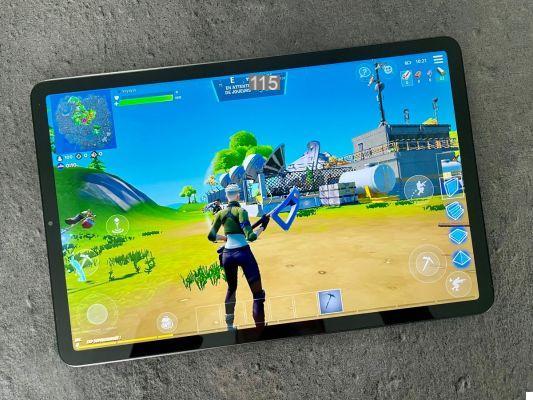 © Mathieu Grumiaux for Itopdroid
© Mathieu Grumiaux for Itopdroid
Finally, with regard to connectivity, Xiaomi offers us Bluetooth 5.0 and WiFi 5 only while many of its competitors are switching to WiFi 6. The general public will not care, of course, but the technophiles that we We regret not to benefit from higher speeds. It will be for next time.
The Xiaomi Pad 5 also does not have a GPS chip. The brand has chosen to do without it, probably for cost reasons, but also by betting that its customers will use their latest tablet only at home, well wedged at the bottom of the sofa. The idea is defended, but we admit that we do not really have a definitive opinion on the question.
Software: MIUI 12.5 and Android 11 go hand in hand
Xiaomi unsurprisingly makes use of its eternal MIUI overlay in version 12.5. Fans of the brand will not be disoriented and will quickly regain their habits by switching from their phone to their tablet during the day.
The interface has been perfectly adapted to the tablet format with a home screen giving pride of place to widgets and applications, all displayed on one or more home screens. It is obviously possible to swap this mode against an application drawer, accessible with a swipe from the bottom to the top.

The control center, in the upper right area of the screen and accessible with a swipe down, groups the most important parameters of the device such as Wi-Fi connection, Bluetooth, brightness, volume or again the Airplane mode and the inescapable Night mode. This menu will delight former iOS users, from whom it clearly draws its inspiration, and can also be deactivated from the device settings.

To access notifications, remember, if you want to keep it, to place your finger on the left side of the screen. A little too far to the right or in the middle and it is the control center that opens and after the 72nd time to make a mistake, it becomes frankly painful.
A setting to wake the tablet from sleep by tapping twice on the screen is also accessible from the settings panel and one wonders why Xiaomi has not activated this practical setting by default.
It is possible to multiscreen by adding two applications side by side on the screen of the device or to switch software to a floating window on the device to access the content without losing track of its navigation. This will be particularly useful with a Twitter client or audio streaming software.

We still find that the ergonomics lack intuitiveness. This will require multitasking, a long press on an app to switch it to a floating window and double-click on it to put it back in full screen, which MIUI 12.5 took care not to tell us when the first creation.
The Xiaomi Pad 5 obviously offers the manufacturer's home software, such as its web browser, but also the collection of Google apps, namely Chrome, Gmail, YouTube and others, which are sometimes duplicated, but which we appreciate having them within easy reach. main, without having to go through the Google Play Store to retrieve them.
For the rest, we can only salute the work done by Xiaomi vis-à-vis the different interfaces. The settings menu is very clear, even for a novice, who can easily find the information or the desired parameter in a few seconds.
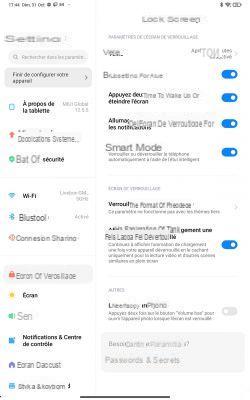
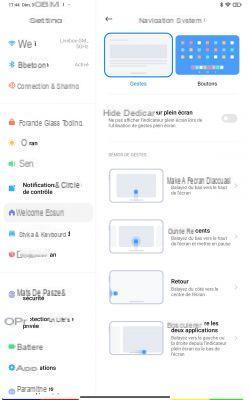
Now lacks a real complete catalog of applications adapted to the tablet format, which remains the real black point of Android compared to the Apple App Store. If the most common software like Netflix or Facebook now have their versions for the big screen, many more confidential applications remain stretched smartphone versions.
Photo / Video: the union minimum for a surprisingly good result
For the photo part, Xiaomi has not sprained and offers a single 13 megapixel back sensor, associated with an LED flash and different algorithms for image enhancement by artificial intelligence.
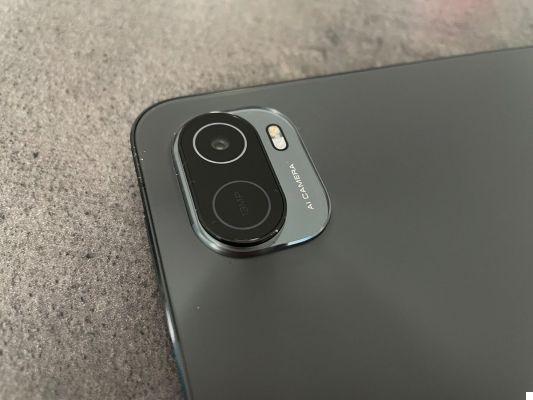 © Mathieu Grumiaux for Itopdroid
© Mathieu Grumiaux for Itopdroid
An 11-inch tablet is not designed to be your main camera and the manufacturer understands that well. Yet the quality of this small lens is absolutely not shameful and gives life to quite exploitable clichés that you can share on social networks or with your loved ones.

Without AI mode / With AI mode © Mathieu Grumiaux for Itopdroid
 © Mathieu Grumiaux for Itopdroid
© Mathieu Grumiaux for Itopdroid
With sufficient brightness, the sensor does strangely well with crisp photos, without too much digital noise despite too warm a tone. Automatic HDR will correct image imperfections such as overexposed areas with remarkable efficiency.
However, avoid the small "AI" button which although supposed to enhance the visual quality of your images, will simply be content to saturate the vivid colors and increase the brightness for a frankly passable result bordering on bad taste.

2x digital zoom / 10x digital zoom © Mathieu Grumiaux for Itopdroid
When night falls, the Xiaomi Pad 5 offers satisfying photos again, even if digital noise quickly shows the tip of its nose on the darker areas of the image. We may also regret that the image processing tends to increase the saturation for a flattering rendering, but very often very far from the reality of the scene being photographed.

Without flash / With flash © Mathieu Grumiaux for Itopdroid
The 8-megapixel front sensor offers contrasting results. In broad daylight, it is decent with an average image quality that will be equally suitable for videoconferencing.



© Mathieu Grumiaux for Itopdroid
At night or in the dark on the other hand, the poor lens quickly shows its limits with noisy images and at the limit of blur in certain areas. And it is not the flash provided by the screen that will bring the slightest added value. The harsh light displayed on the screen barely corrects the flaws in the sensor, but in return gives you a much better looking pale complexion. To forget then ...
Battery life: two to three days of average use
With a 8720 mAh battery, we could expect a good battery life from the Xiaomi Pad 5 and we were not disappointed.
During our period of use, which mixed up in disorder a lot of streaming on Twitch, a little video games, just as much online music and a lot of web browsing, the touch pad held about 17 hours of screen time. before giving up the ghost. For family and versatile use, without getting too wet, indicate that the device will be able to hold out for about two to three days by pushing a little before going back through the recharging box.
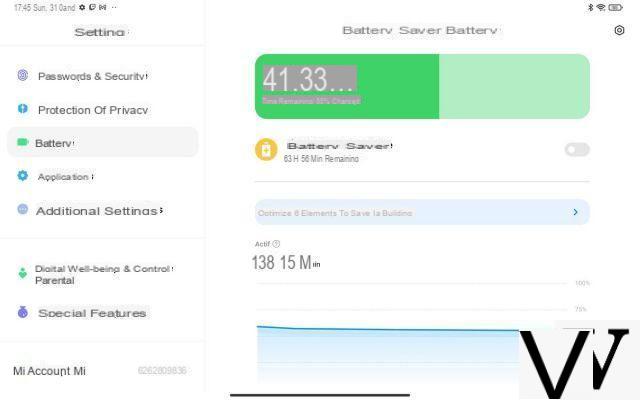
The 33W charger supplied by the manufacturer allows it to restore 100% of the battery to the device in 2 hours 20 minutes, a score that is completely consistent with other devices on the market, but not exceptional for all that. In fact, we expected a little better.
Xiaomi Pad 5: Itopdroid's user review
With a public price of 399 €, Xiaomi is targeting a niche that is almost occupied only by the venerable (and a little aging) Apple's 9,7-inch iPad. And the manufacturer is doing it very well with a touchscreen tablet all that is most recommendable at the moment.
The device has a technical data sheet that is quite sufficient for the vast majority of users. Xiaomi is clearly not making fun of the world with a very impressive power for many uses and a 120 Hz display, still confined today to high-end tablets.
If there are some wrong notes, such as an audio part that only has Dolby Atmos the name or the absence of the fingerprint sensor and the GPS chip, the Xiaomi Pad 5 succeeds in its bet to know how to offer a high-performance product. and well finished at an unbeatable price.
If informed users and professionals will pass their turn, the general public will probably be sensitive to his arguments and we strongly advise him to take a look at this model which does much more than figuration against its competitors.
Xiaomi pad 5
8The Xiaomi Pad 5 is a family and affordable tablet that never makes fun of the world with performance quite sufficient for the majority of uses, a solid battery life if not bluffing and a very neat software. Quite simply one of the best choices right now for Android users.
Most
- Sober design
- 120 Hz display
- A high-performance processor for the majority of tasks
- MIUI 12.5
- Photo quality
- Autonomy of almost 3 days in versatile use
The lessers
- Optional accessories
- An audio system that lacks depth
- No fingerprint reader or GPS
- Only Wi-Fi 5
Design 8
Screen 8
Performances 7
Software 7
Photo / Video 7
Autonomy 8
349,99€
- Most
- The lessers
- Details
- Sober design
- 120 Hz display
- A high-performance processor for the majority of tasks
- MIUI 12.5
- Photo quality
- Autonomy of almost 3 days in versatile use
- Optional accessories
- An audio system that lacks depth
- No fingerprint reader or GPS
- Only Wi-Fi 5
Design 8
Screen 8
Performances 7
Software 7
Photo / Video 7
Autonomy 8
349,99€









